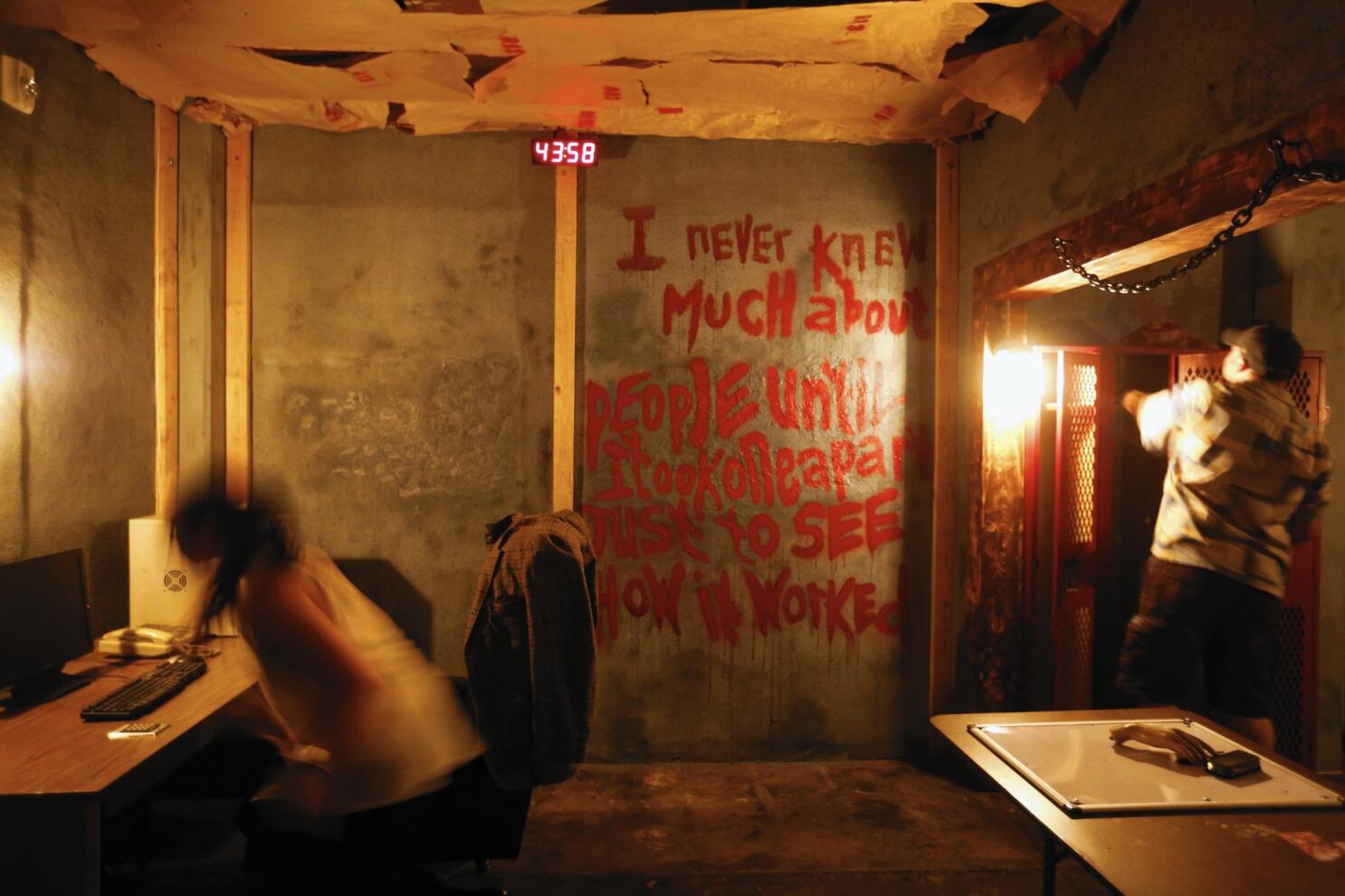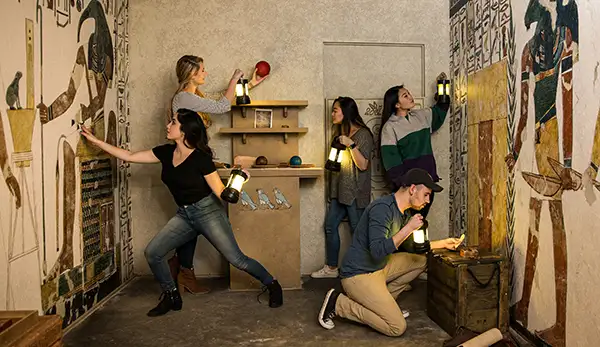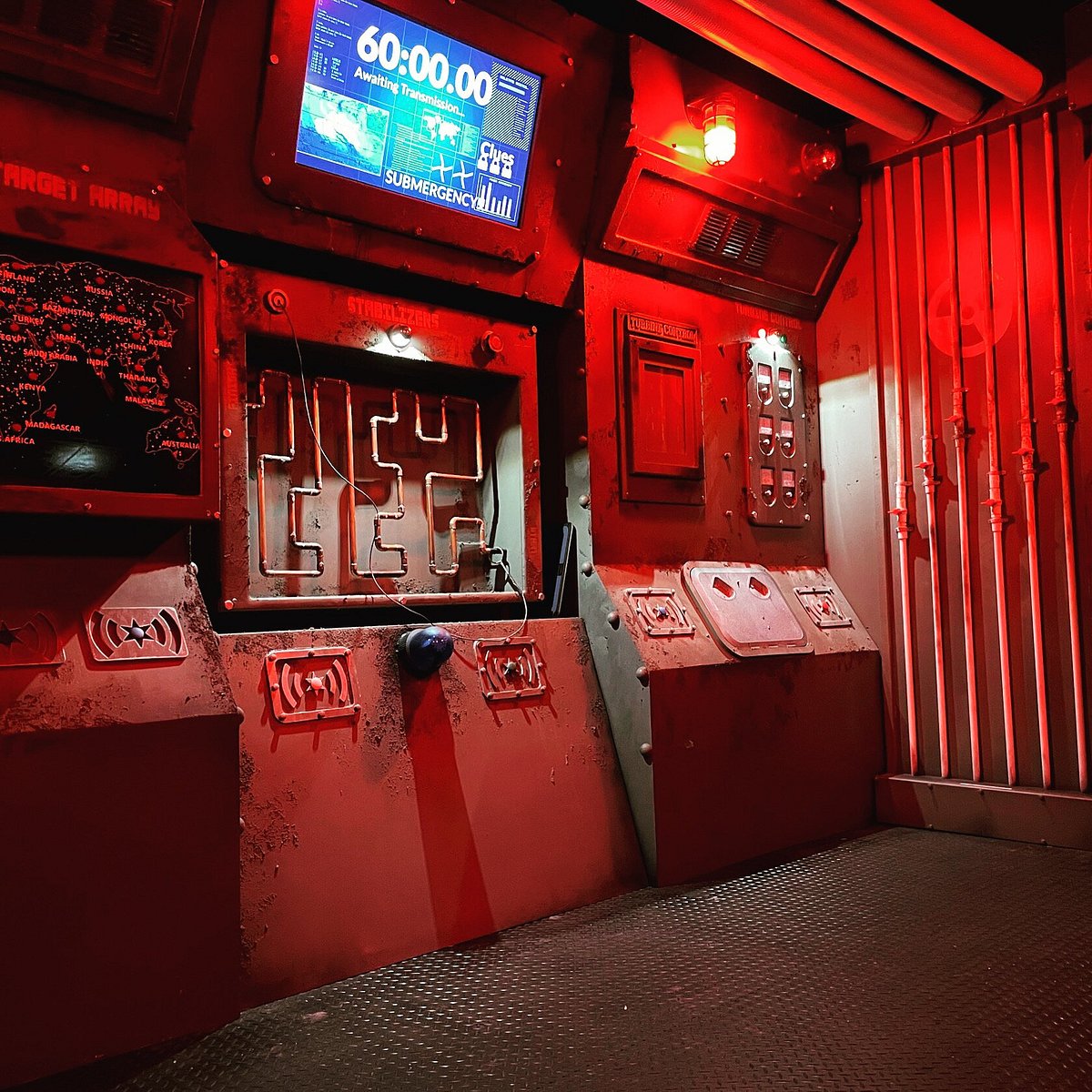Escape Room Minneapolis Mall of America-- Immersive and Fun
Escape Room Minneapolis Mall of America-- Immersive and Fun
Blog Article
Group Approaches: Exactly How to Work together Efficiently in a Getaway Area
Browsing the complexities of a getaway area necessitates even more than mere interest; it calls for a well-coordinated strategy based in clear interaction, tactical role assignments, and experienced time monitoring. Groups should actively pay attention per member's insights, appoint functions that line up with individual strengths, and keep routine check-ins to guarantee emphasis and protect against redundancy. By promoting an atmosphere that values cohesion and adaptability, groups can dramatically increase their efficiency and success prices. The subtleties of these techniques can transform the experience, but how specifically can they be executed to make the most of the possibility for success?
Establish Clear Interaction

To promote clear interaction, it is crucial to mark a main factor of get in touch with for info dissemination. Brief, focused updates from each group participant can keep the group notified without frustrating them with information.

Assign Duties Tactically
While clear interaction establishes the foundation for reliable team effort, assigning duties tactically ensures that each employee's staminas are utilized properly. In a getaway room circumstance, the time-sensitive and complicated nature of difficulties demands an efficient approach to job delegation. By determining and leveraging individual expertises, teams can maximize their analytical capacities and improve total efficiency.
Somebody with an eager eye for information could excel in discovering concealed things, while a logical thinker could be better fit to addressing problems. This role commonly calls for strong organizational and interpersonal skills.
Second, make sure that duties are flexible and adaptable. As new challenges arise, the group needs to have the ability to pivot, reapportioning tasks as required. This adaptability helps maintain energy and protects against traffic jams that can take place as a result of stiff function projects.
Eventually, a tactical method to role project not only makes the most of the strengths of each team participant yet additionally promotes a cohesive environment, driving the group in the direction of an effective escape.
Utilize Diverse Skills
Identifying and using the varied skills within your group can dramatically boost your performance in a retreat space. Each staff member brings distinct strengths to the table, and effectively leveraging these capacities can accelerate problem-solving and boost general efficiency. For instance, a group member with solid analytical abilities may excel at deciphering complicated codes or patterns, while another with eager observational capabilities might quickly identify hidden hints that might forget.
Motivate team members to voice their understandings and concepts promptly, ensuring that all potential services are thought about. Furthermore, assigning tasks that align with each member's toughness can prevent traffic jams and make certain that progress is continuous.
Moreover, diversity in skills commonly converts to variety in believing styles, which is indispensable in a getaway space setting. While some obstacles might call find more for logical thinking and accuracy, others could gain from creative and side thinking. By recognizing and leveraging this diversity, groups can attend to a wider array of challenges better, therefore boosting their chances of an effective getaway.
Manage Time Efficiently

First, designate preliminary mins for a fast study of the space. Determine visible challenges and split tasks based on employee' toughness, ensuring that nobody is still. Establish internal time checkpoints to evaluate progress periodically; for example, aim to have half the puzzles resolved by the mid-point of the game. This method can assist maintain the group concentrated and protect against time from slipping away undetected.
In addition, prevent one-track mind. If a problem is taking as well long, rotate employee or proceed to another obstacle, returning later with fresh perspectives. Interaction is vital-- keep every person upgraded on resolved problems and staying jobs to prevent redundant initiatives.
Lastly, make use of any type of hints or ideas sparingly yet tactically - best escape room. Knowing when to request for assistance can conserve important time. By adhering to these time administration principles, groups can dramatically enhance their opportunities of this hyperlink a successful and enjoyable getaway area experience
Debrief and Reflect
Representation is a necessary aspect of group Check Out Your URL development and enhancement in the context of retreat spaces. As soon as the challenge is finished, whether efficiently or not, it is crucial for the group to take part in an organized debriefing session. This procedure allows team participants to analyze their performance, recognize strengths, and pinpoint areas for renovation.
Begin the debrief by discussing what worked out. Highlight details instances of efficient interaction, problem-solving, and collaboration. Identifying these favorable behaviors strengthens them and motivates their rep in future challenges.
Review minutes of confusion, miscommunication, or ineffective strategies. Encourage an open and useful dialogue where team participants can share their viewpoints without concern of objection.
Verdict
To conclude, effective cooperation in a retreat area is asserted upon clear interaction, calculated function tasks, the efficient use of varied abilities, and skillful time monitoring. Normal check-ins and organized debriefings are essential for maintaining focus and fostering continuous improvement. By creating a natural and flexible team atmosphere, the probability of effectively resolving puzzles and achieving the purpose of running away the area is significantly boosted. This strategy not just ensures success yet additionally advertises collective development and discovering.
Report this page